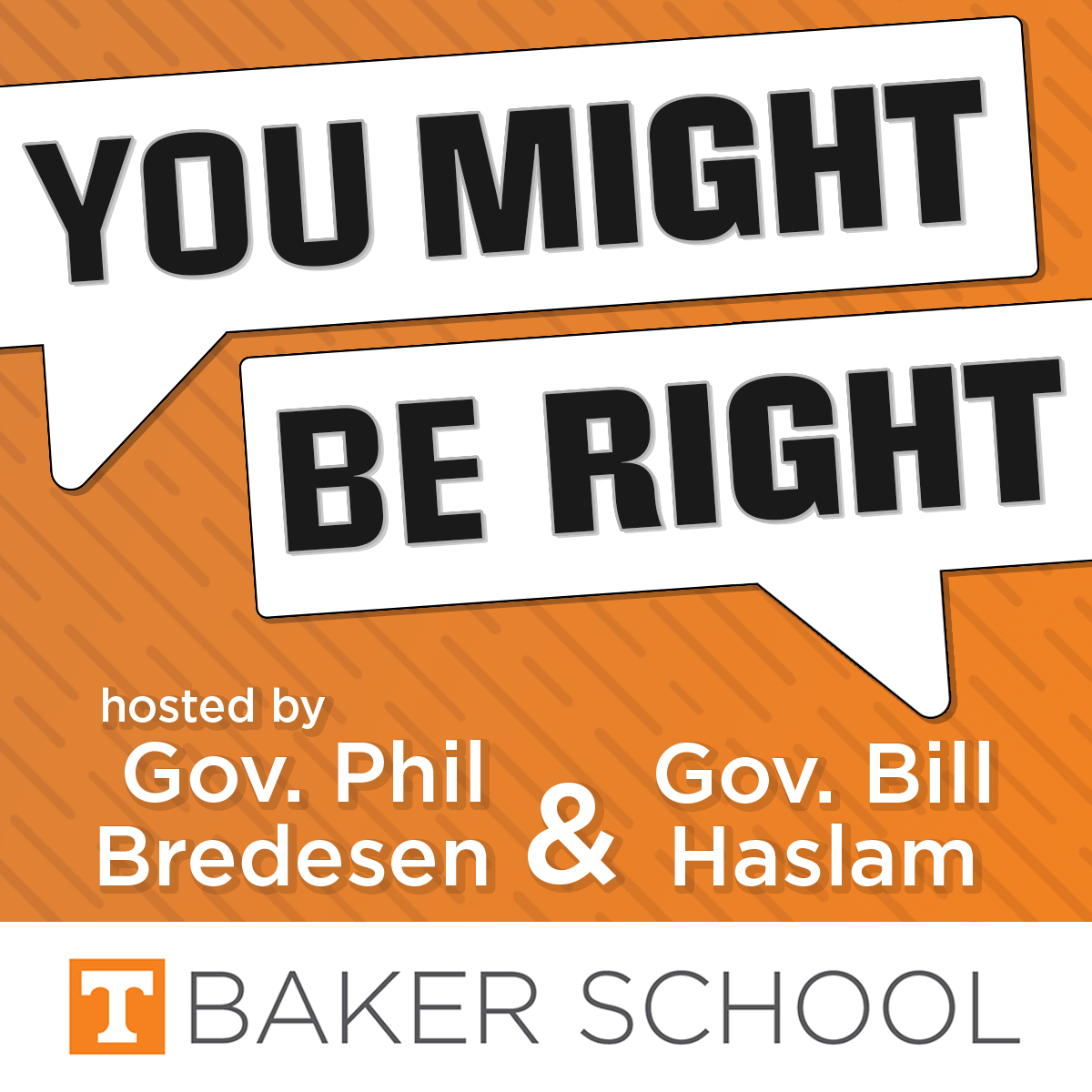Do We Need a Democracy Renovation?
EPISODE 5: Harvard University professor and Institute of American Civics Board of Fellows member Danielle Allen joins Governors Bredesen and Haslam to share her vision for shoring up democracy.
What would it look like to “renovate” our democracy? How might artificial intelligence help – or harm – those efforts? Harvard University professor, author, Washington Post columnist, and democracy scholar Danielle Allen joins Governors Bredesen and Haslam for a wide-ranging discussion about civics education and democracy reform.
Subscribe and follow You Might be Right wherever you get your audio content – including Apple Podcasts, Spotify, and Stitcher – to never miss an episode, or sign up for our email list to receive new episodes straight to your inbox each week here.
“Some folks got rooms with a view, and other folks got relegated to the basement”
Allen opened the conversation by elaborating on her vision for a “democracy renovation,” a concept she also explores in a series of columns for the Washington Post. She likened the type of renovation project she has in mind to putting on an addition to a house or knocking down the wall between two rooms to open up a space. “It’s not that you have to go all the way down to the studs, but you are meaningfully transforming the shape of your house,” she told the governors.
Our Common Purpose: Reinventing American Democracy for the 21st Century
Allen pointed to several reasons behind the need for renovation. “We’re huge. We’re 330 million people compared to the 3 million when we started…there are just lots of ways in which we need to accommodate our growth, our growth as a people, our growth as a society,” she told Governors Bredesen and Haslam. “When we look at the house we share together, these institutions we built, the truth is they weren’t really built for everybody at the very beginning. As I often say, some folks got rooms with a view, and other folks got relegated to the basement. So that’s where I think there’s work to do to renovate to make sure there are good rooms for all.”
Allen would start her renovation plans by growing the size of the U.S. House of Representatives (a related Washington Post column visualizes what that might look like), noting the idea has a historical basis; the one time George Washington spoke at the Constitutional Convention was to voice his support for smaller districts. Allen outlined what she calls a “deferred maintenance strategy” that would account for the country’s growth in the last 100 years by expanding the House to 585 seats from its current 435. “The good news is we could fit that many people into the existing chamber,” she said. “We don’t even need a new building to do it!”
“They haven’t seen their country perform at the level of their own hopes and aspirations”
Allen, the founding director of the Democratic Knowledge Project, a civics education provider, shared why she works on both democracy reform and civics education. “I think we do need civic education and we do need knowledge, but we also have to make sure that we’re inviting people to participate in a democracy that’s genuinely responsive, genuinely effective in solving our problems,” she said.
Allen shared several statistics about how disconnected young people today feel from democracy, calling it “the thing that keeps me up at night.” Not quite 30% of millennials (age 40 and younger) consider it essential to live in a democracy as compared to about 70% of folks born before World War II, she noted. Allen also pointed to a separate study that looked at how proud people feel to live in America that again highlighted a stark generational difference: 73% of baby boomers and 53% of Gen Xers said they were proud to live in America, but only 36% of millennials and 16% of Gen Z said that they were.
Why are younger generations so disconnected? “They have lived through really hard times in this country’s history. I think in that context, they haven’t seen their country perform at the level of their own hopes and aspirations,” she told Governors Bredesen and Haslam.
“AI is really a double-edged sword”
How might artificial intelligence (AI) help – or harm – her plans to renovate democracy? Allen, who has written about the intersection of AI and democracy, acknowledged, “AI is really a double-edged sword, it has to be said. As with any technological tool, there’s good that can come from it if we harness it appropriately, but there are also a lot of challenges.”
“One of the hard things about AI is that there are both near-term challenges, and then much sort of farther out challenges,” she continued. “The near-term challenges are already pretty visible to us. We can see that misinformation is going to accelerate, fraudulent imposter types of strategies will be much easier for people to perpetrate. And so, we can imagine, that will complicate very much how well people can understand what’s happening in politics.”
It’s not all bad news, necessarily as Allen pointed to an example of how AI is being used in an advantageous way in Taiwan to build consensus and navigate controversial issues by conducting surveys that give people the chance to write open-ended answers, instead of having to choose from limited pre-set options. AI tools then review the responses for places of agreement that might not have otherwise surfaced. “They’ve been able to use this method to support compromise legislation, consensus-building legislation, and make the effectiveness of their government stronger,” she said.
Subscribe and follow You Might be Right wherever you get your audio content – including Apple Podcasts and Spotify – to never miss an episode, or sign up for our email list to receive new episodes straight to your inbox each week here.

Join the conversation on Twitter by following @UTBakerSchool, @PhilBredesen, and @BillHaslam.